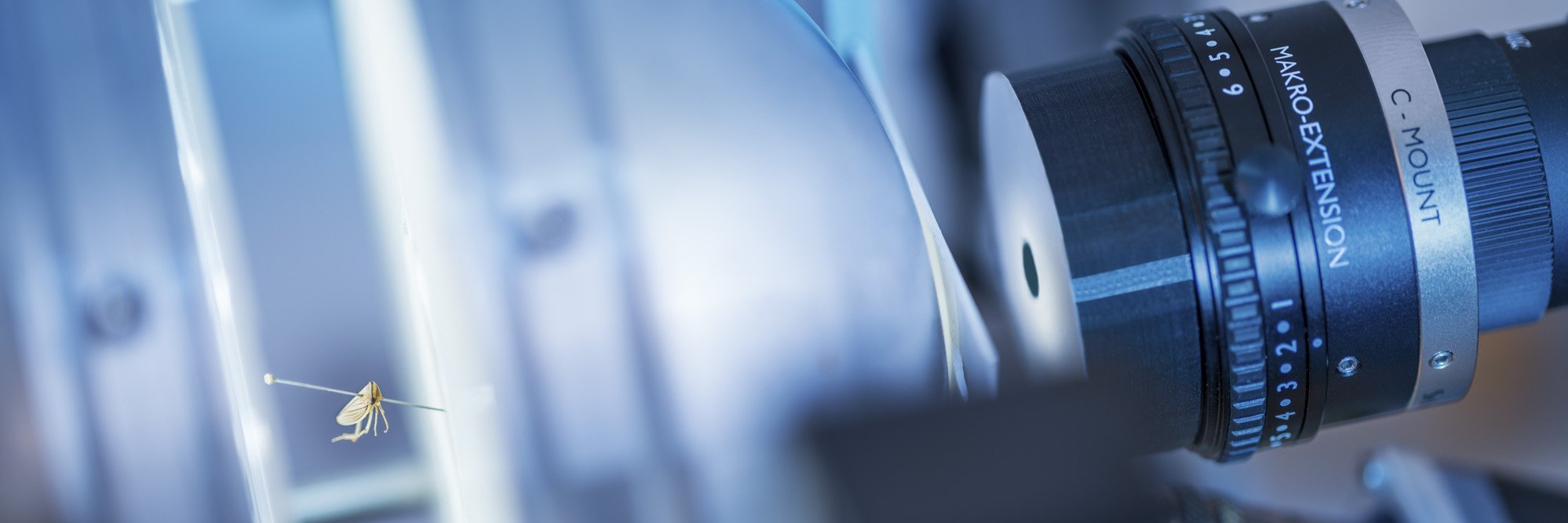Dual study model Photonics and Machine Vision (Master)
Cameras, lasers, optics and light: this is what students in the three-semester master's program in Photonics and Machine Vision processing deal with.
The master's degree is part of the consecutive and practice-oriented Photonics and Machine Vision program and is unique in Europe.
Students are taught the two sub-areas of Photonics and Machine Vision in an integrated and equally weighted manner. In cooperation with the Technical University of Central Hesse, theoretical and practical elements of optical technologies are deepened.
The Master's program in Photonics and Machine Vision is accredited by the ASIIN agency. It has been awarded the seal of approval of the Accreditation Council.
The dual study model Photonics and Machine Vision is integrated into the regular Master's program. The students of the dual study programs study in the theory phases together with the regular students in the semester association and work in the cooperating company during the lecture-free periods.
In addition, the dual student completes the following practical phases in the cooperating company:
- Integrated research project
- Master thesis in the 3rd semester
Designation | Photonics and Machine Vision |
University Degree | Master of Science (M. Sc.) |
Standard period of study | 3 semesters |
Start of study | Winter and summer semester |
Admission | See below: Previous education. What is required |
Languages | The courses are held in German. |
As the only master's degree program of its kind in Germany, Photonics and Machine Vision offers graduates outstanding career prospects in the growing field of optical technologies. Employment in industry as well as in research is possible. Since methods, processes, products and systems of optotechnology and image processing are used as a cross-sectional technology in almost every branch of industry, the demand for qualified employees is very high. The graduates are sustainably qualified, perform demanding engineering activities in companies or take on management responsibilities.
Prerequisite for the three-semester master's program in Photonics and Machine Vision is a relevant bachelor's degree (overall grade 2.5 or better), for example also mechatronics, electrical engineering or physical engineering. If necessary, a committee will decide on admission. Applicants are also expected to have a thorough knowledge and understanding of mathematics, physics, and programming techniques. Knowledge of electronics, signal processing and precision engineering is also required, as is proficiency in English. Those with a six-semester bachelor's degree are prepared for smooth entry into the master's program during a transition semester at Darmstadt University of Applied Sciences.
Before the start of the program, a familiarization phase of at least four weeks at the cooperating company is desirable.
The master's degree program in Photonics and Machine Vision is divided into three semesters. In the first two semesters, the subfields are deepened theoretically and practically. In the technical elective module there are more than 20 offers for specialization, for example in laser application in medicine and medical technology. The place of study is Darmstadt. However, special events are also held in Friedberg one day a week, including laboratory exercises on laser technology. The third semester is reserved for the master's thesis, which is carried out in the cooperating company.
Examination Regulations 2020
- Study Program PO 2020 Master Photonics and Machine Vision
- Examination Regulations PO 2020 Master Photonics and Machine Vision: This document also contains the following appendices: study program, elective catalogs, laboratory regulations.
- Module Manual PO 2020 Master Photonics and Machine Vision
The BBPO and the Module Handbook were officially published in the Hochschulanzeiger 2022.
The first point of contact for most questions about studying is the Student Service Center, or SSC for short. In addition to general student counseling and information on the details of the application process, advice on the organization or financing of studies is also available here. Student Service Center (SSC)
If you have any questions specifically related to the dual study program model, the dual study center will be happy to help. A lot of information about dual studies can also be found at Dual studieren am Fachbereich MN.
Once you have started your studies, these are probably the most important pages:
The link my.h-da (is also stored under Quicklinks) takes you to the university information system for students. Here you can
- print out all the certificates you need yourself (study certificates, Bafög certificate and the receipt for the fees you have paid).
- view information about your exams and grades
- register for or deregister from exams.
- register for courses.
- view your course schedule and the course catalog.
- compile your individual timetable.
At www.h-da.de/tutorials you will find brief instructions for registering for exams, viewing grades, and much more.
Semester dates: Here you can find the dates for exams and events for all courses of study. This page can also be accessed directly via quicklinks.
Timetables: This page contains the links to the PDFs with the current timetables for all degree programs.
Students following the dual study model Photonics and Machine Vision can change to the regular study program Photonics and Machine Visione at any time.
Contact
Consultant Dual Study Model
Opening hours secretariat | |
|---|---|
Mon: | Appointment by arrangement |
Tue: | Appointment by arrangement |
Wed: | 9 am - 2 pm Open consultation hours |
Thu:: | 9 am - 2 pm Open consultation hours |
Fri: | Appointment by arrangement |
Info compact
Study program flyer (in German only)
Timetables
Dates and deadlines
Announcements EC
Information about theses (in German only)
Examination regulations 2020 (in German only)
- Study program PO 2020
- Examination regulations PO 2020 (incl. study program, elective catalogs, laboratory regulations)
- Module Handbook PO 2020
